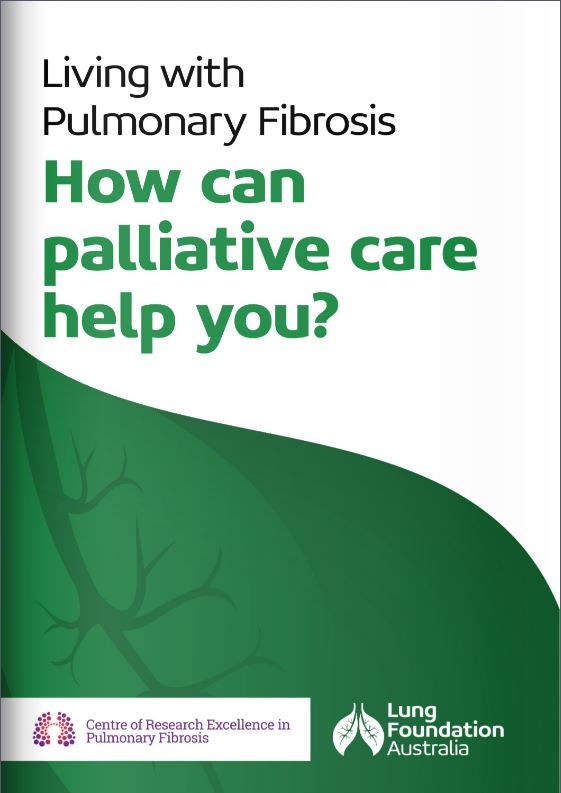The Palliative Care factsheet has been designed to provide information on palliative care and the benefits of engaging early with this service to help you live as well as possible with PF. This resource contains information, which along with advice from your treating healthcare team, will help you make choices which are the best for you and your situation.
Palliative care is a multidisciplinary approach for managing life-limiting, incurable diseases like PF. It aims to improve quality of life by managing symptoms and providing holistic care. Palliative care is not only for end-of-life but can be integrated early in the disease process.
Palliative care can begin at any stage of PF, even at diagnosis, alongside other treatments. It can be provided in various settings, including home, hospitals, and palliative care units. Patients can discuss palliative care options with their healthcare team at any time.
The healthcare team may include doctors, nurses, occupational therapists, psychologists, social workers, and other specialists. They work together to manage symptoms like breathlessness, cough, anxiety, and depression. The healthcare team also supports caregivers and provides resources like wheelchairs or moving beds.
There are three components of Palliative Care:
- Symptom care, which focuses on managing symptoms to improve quality of life.
- End-of-life discussions, which helps patients express their wishes and make decisions about future care.
- End-of-life care, which ensures comfort and dignity in the final weeks of life.
Palliative care is about minimising your symptoms and living well with PF. It will help support you and your family, to allow you to live your life as comfortably as possible. For more information and support, or to talk to one of Lung Foundation Australia’s experienced Respiratory Care Nuses or Social Workers visit www.lungfoundation.com.au
Was this page helpful?
Good job! Please give your positive feedback
How could we improve this post? Please Help us.
